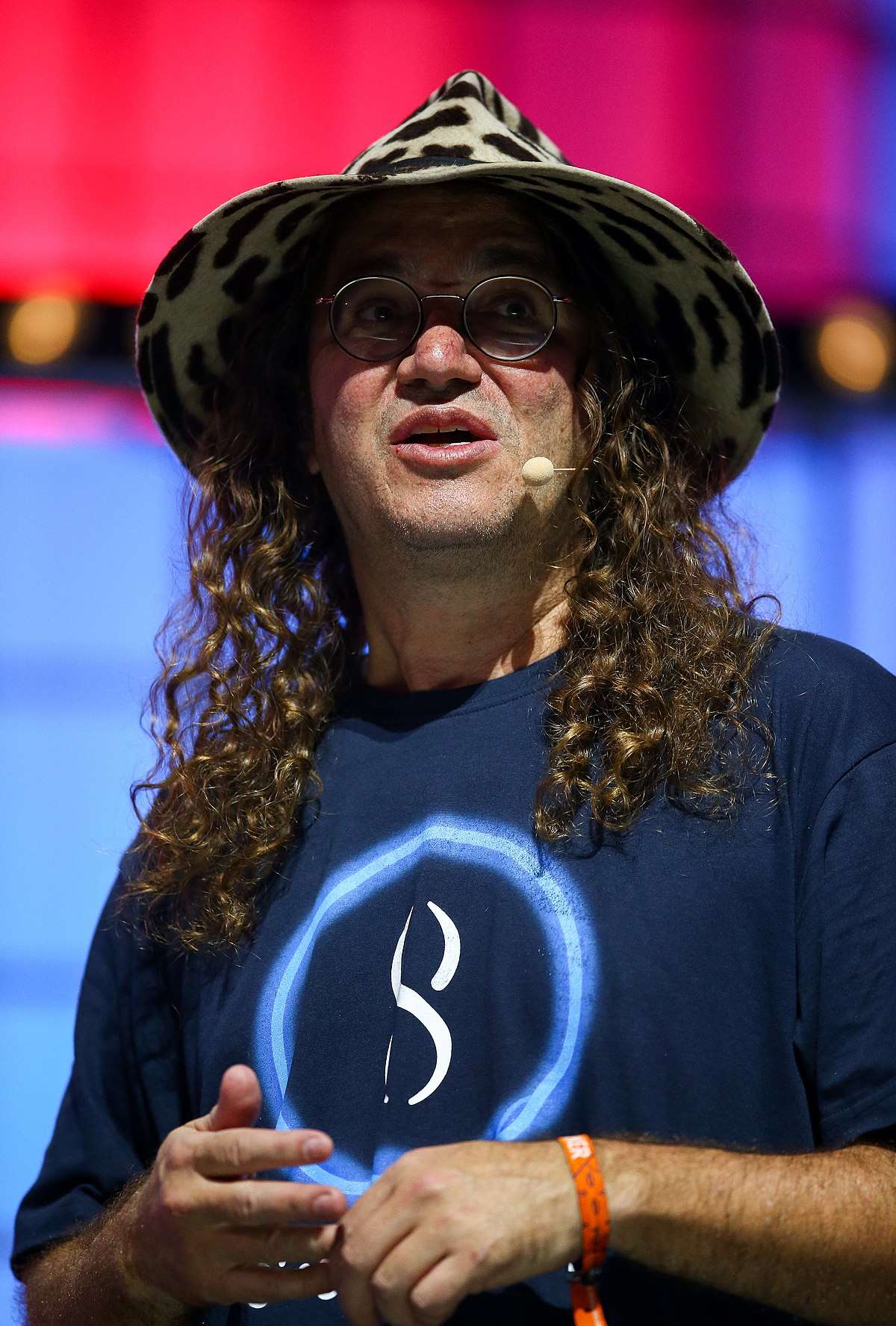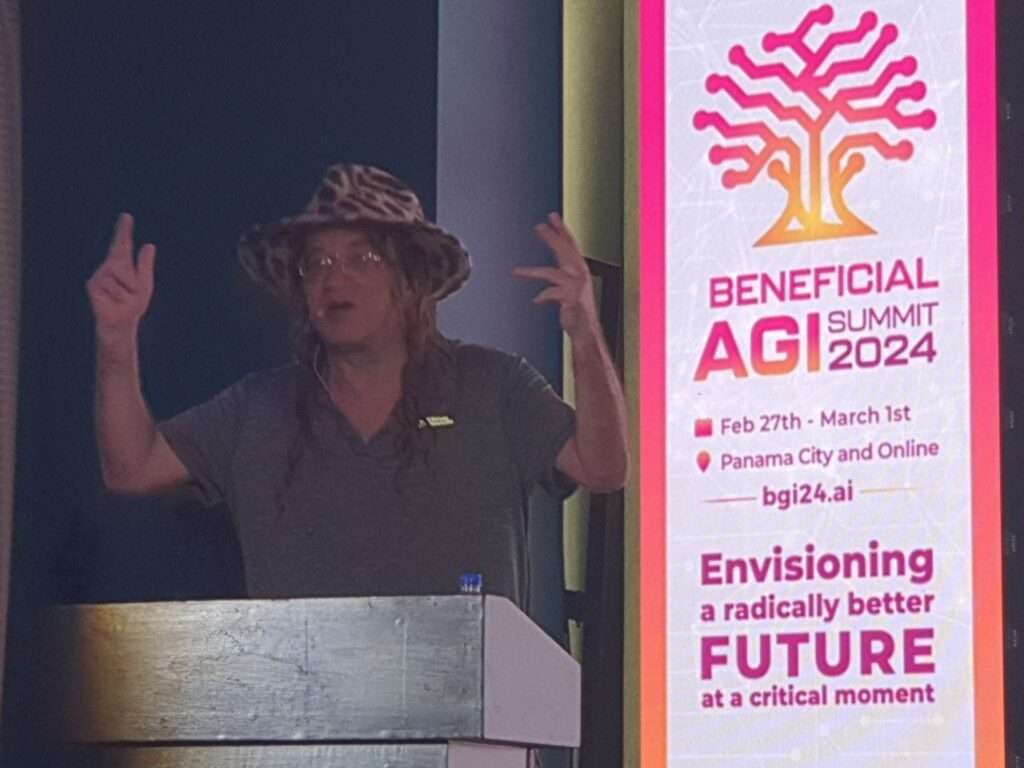
Ben Goertzel envisions AGI serving humanity from 2025
Ben Goertzel, founder of SingularityNET, predicts an operational prototype framework for Artificial General Intelligence (AGI) as soon as next year.
Ben Goertzel, founder of SingularityNET, thinks that an early prototype framework for Artificial General Intelligence might be operational as soon as next year.
Ben Goertzel, who coined the term artificial general intelligence (AGI), spoke at the opening of the Beneficial AGI Summit in Panama on February 27. He outlined a plan for the development of AGI to make sure it doesn’t get dominated by governments or companies and will serve humanity instead of hurt it.
Theoretically, artificial general intelligence (AGI) would allow for the creation of an AI system capable of doing every intellectual task that humans are capable of.
In his proposal, Ben Goertzel outlines the following: open source code; decentralized infrastructure and governance; an open-ended cognitive architecture; different artificial intelligence algorithms; data that is sourced and managed ethically; and the inclusion of people from all corners of the globe.
“Everything we’re doing in the whole SingularityNET ecosystem” is based on the blueprint, Ben Goertzel told the media in an interview.
He stated, “We’re building decentralized AI infrastructures that are agnostic with respect to what AI approach you may want to take,” and went on to say that the goal was for a “12-year-old genius from Tajikistan” to be able to make a significant accomplishment.

Even though the network is meant to encourage many contributions and collaboration in order to get AGI, Goertzel stated that his “best guess” is that his own OpenCog Hyperon project “may be the system to make the breakthrough.”
Hyperon, which is set to be released in Alpha in April and has a long list of coauthors, is characterized in a research article as “a framework for AGI at the human level and beyond” that integrates cutting-edge concepts, programs, and methods. Ben Goertzel joined forces with SingularityNET in 2008 to launch OpenCog, an open-source artificial intelligence project.
According to his account, in April, the Hyperon Alpha will become available to the public as a prototype artificial general intelligence (AGI) system that makes use of a custom programming language named Metta. This language will allow open-source developers to create more effective code for various AI applications.
In an effort to get Ben Goertzel to spill the beans, we wanted to know if the alpha release was going to be a precursor to a complete AGI or something along those lines.
“By the end of the year, we will have a full set of tools to construct the baby AGI,” he explained, adding that they would enormously scale up the system in the interim.
“To get to something I would want to call a baby AGI we will need that million times speed up.”
“We might have a baby AGI by early 2025,” he speculated. For those who choose to use that metaphor, “I believe we can call it a fetal AGI,” I said.
Vitalik Buterin’s d/acc AGI approach has Ben Goertzel’s backing.
To create superintelligent AI, Ben Goertzel also backed Vitalik Buterin’s defensive acceleration (d/acc) method.
There are two schools of thought on the topic of artificial general intelligence (AGI) development: accelerationists (e/acc) who are in favor of moving quickly toward the technology because of its advantages, and decelerationists (decel) who are in favor of moving slowly owing to the existential dangers it poses.
While the second option, even if optimal, would be completely unrealistic, according to Goertzel, the former had an air of “Silicon Valley Uber Alles” about it.
He instead joined Buterin in endorsing the November-proposed “decentralized accelerationism” or “defensive accelerationism” strategy.
He acknowledged that fast-tracking AGI development is “probably the best thing we can do,” but emphasized the importance of preventing “power over AGI to be concentrated in any one party […] and we want to pay attention to various bad things that could happen.”
The Consciousness Explosion, Goertzel’s new book on artificial general intelligence, contends that this technology will have tremendous positive effects, such as freeing people from menial tasks, curing aging, eliminating all mental and physical illnesses, and maybe even preventing involuntary death.
These advantages, he argues, exceed the dangers, but there are still many ways in which AGI might fail.
Among the dangers he listed in his speech was the possibility that the US and China would create “super AGI whose goal is to clobber the other guy” or that the implementation of AGI would be unethical, serving the interests of the wealthy at the expense of the poor.

There was every chance of regulatory capture, in which large corporations advocate for rules that favor their interests over those of the general public.
Though improbable, “the risk Hollywood likes to talk about”—an AI going berserk—was also not out of the question.
As he put it, “we’re going into fundamentally unknown territory,” so it’s hard to say for sure what could be going on.





